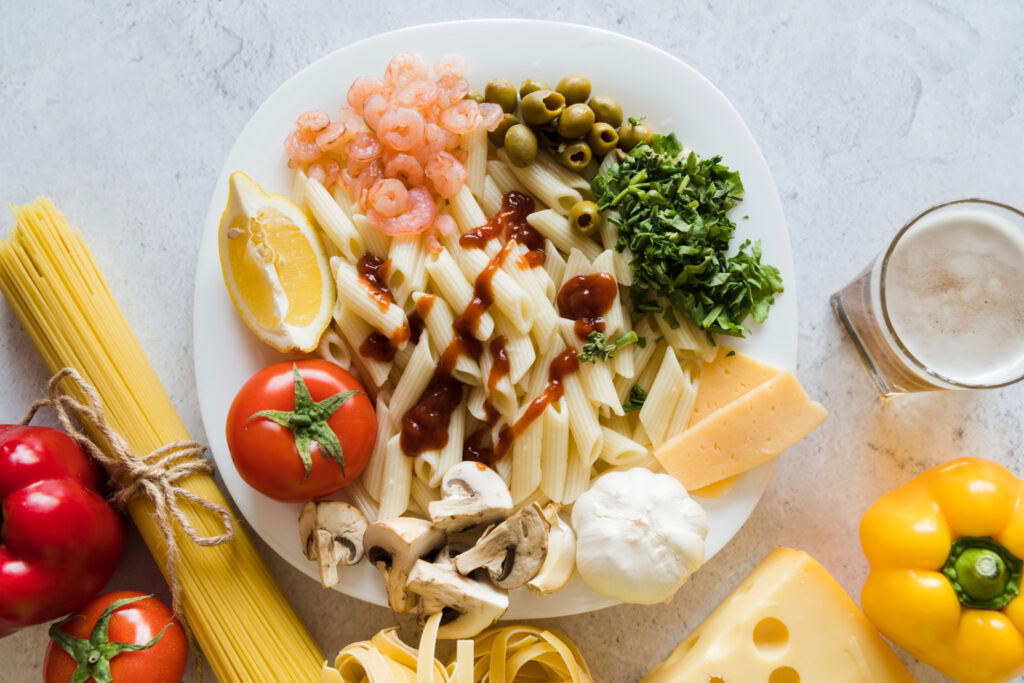
In this article
overview
Collagen is the glue that holds your body together, playing a pivotal role in maintaining skin elasticity, joint health, and overall vitality As we grow older, our body’s ability to produce collagen naturally diminishes, resulting in the development of wrinkles, joint discomfort, and other aging symptoms. However, you can boost your collagen levels through diet. Here’s an engaging, informative, and original guide on foods high in collagen and their benefits.
What is Collagen and Why Is It Important?
Collagen is a protein that constitutes roughly one-third of the total protein in the body. It acts as a building block for skin, bones, muscles, tendons, and ligaments, providing structure and strength. With age and exposure to UV light, collagen production declines, making it crucial to include collagen-rich foods in your diet to maintain healthy skin, muscles, and ligaments.
Key Collagen-Boosting Foods
Bone Broth
Bone broth is a popular source of collagen. Simmering animal bones and connective tissues breaks down the collagen into gelatin, which your body can easily absorb. Bone broth also contains essential amino acids and minerals, making it a nutritious addition to your diet.
Fish and Shellfish
Marine collagen, derived from fish skin and scales, is known for its high bioavailability, meaning it’s more easily absorbed by the body. This type of collagen is rich in Type I collagen, which promotes the health and elasticity of skin, bones, and tendons. Including fish like salmon with skin in your diet can provide a significant collagen boost.
Chicken
Chicken, especially its cartilage, is a rich source of Type II collagen, which is beneficial for joint health. Consuming chicken wings or cuts with skin can help alleviate arthritis symptoms and support overall joint health.
Beef
Beef contains Type I and Type III collagen, essential for skin, bone, and connective tissue health. While steak includes some collagen, cuts with more connective tissue, like short ribs, offer higher collagen content.
Egg Whites
Egg whites are rich in proline, an essential amino acid for collagen synthesis.Including eggs in your diet can help maintain skin elasticity and support collagen synthesis.
Foods That Support Collagen Production
Citrus Fruits
Citrus fruits like oranges and grapefruits are rich in vitamin C, a key nutrient for collagen production. Vitamin C aids in synthesizing pro-collagen, the body’s precursor to collagen.
Berries
Berries such as strawberries, raspberries, and blueberries are also high in vitamin C. They help the body form collagen and use it effectively, contributing to skin health and elasticity.
Garlic
Garlic is rich in sulfur, which supports collagen production and helps prevent its breakdown. It also contains taurine and lipid acid, compounds that help rebuild damaged collagen fibers.
Dairy Products
While dairy products don’t contain collagen, they are rich in proline and glycine, essential amino acids for collagen synthesis. Including milk, cheese, and yogurt in your diet can help maintain skin elasticity and bone health.
Cashews
Cashews are packed with copper, a mineral crucial for collagen and elastin production. They also contain zinc, which is vital for the body’s ability to repair itself and create collagen.
Surprising Sources of Collagen
Pork Rinds
Pork rinds, made from pigskin, are an effective source of dietary collagen. They are high in protein and glycine, essential for collagen synthesis.
Oysters
Oysters are high in zinc, a critical component in collagen creation and repair. They also contain amino acids like glycine and proline, essential for collagen production.
The Benefits of Eating More Collagen
Skin Health
Collagen contributes to skin elasticity, hydration, and overall health. Increasing collagen intake can combat aging effects, such as wrinkles and dry skin, promoting youthful, glowing skin.
Joint Health
Collagen maintains the integrity of cartilage, protecting joints and reducing pain. Increasing collagen consumption can ease arthritis symptoms and improve joint health.
Heart Health
Collagen provides structure to arteries, preventing them from weakening and supporting overall heart health.
Muscle Mass
Collagen contains glycine, which plays a role in creatine synthesis, providing muscles with the fuel they need to enhance muscle mass and performance.
Bone Health
Collagen helps keep bones strong and healthy. As collagen levels decrease with age, boosting intake can help prevent conditions like osteoporosis.
Collagen Foods vs. Supplements
While both dietary collagen and supplements can support collagen levels, food sources offer a more natural form with additional nutrients like antioxidants, vitamins, and minerals. However, supplements can be convenient for those with dietary restrictions or limited food access. Consult a healthcare professional to identify the best option for your needs.
Best Foods to Eat for a Collagen Boost
- Beef Bone Broth: Rich in Type I collagen for skin, hair, and nail health.
- Skin-On Chicken: High in collagen, beneficial for skin elasticity and joint health.
- Pork Bone Broth: Similar to human collagen, often used in healthcare for skin and tendon repair.
- Sardines: Consuming the whole fish, including bones and skin, provides a collagen boost.
- Organ Meats: Concentrated in collagen Type I, supporting various body functions.
- Collagen-Infused Drinks: Beverages with hydrolyzed collagen are easily digested and well-absorbed.
- Gummy Candy: Though not the healthiest, gelatin-based gummies can contribute to collagen intake.
- Berries: High in vitamin C, essential for collagen synthesis.
The Takeaway
Collagen is crucial for maintaining skin, joint, and overall health. Including collagen-rich foods in your diet can help counteract the natural decline in collagen production as you age. Whether you choose bone broth, fish, chicken, or even berries, a diverse diet rich in collagen-boosting foods can support your body’s needs. Remember to consult with a healthcare professional to determine the best approach for your collagen intake
A Quick Review
Collagen, a vital protein for skin, bones, and joints, declines with age, affecting overall health. Consuming collagen-rich foods like bone broth, fish, chicken, and eggs can help maintain and boost collagen levels, promoting skin elasticity, joint health, and overall well-being. Incorporating these foods into your diet can support natural collagen production and enhance your health
Frequently asked questionsay
What is collagen, and why is it important?
Collagen is a protein that makes up about one-third of the body’s total protein content. It provides structure to skin, bones, muscles, tendons, and ligaments, contributing to overall health and well-being.
Which foods are high in collagen?
Foods high in collagen include bone broth, fish and shellfish, chicken, beef, egg whites, and pork rinds. These foods can help boost your body’s collagen production naturally.
Are there plant-based sources of collagen?
While plants do not contain collagen, they provide nutrients that support collagen production, such as vitamin C, found in citrus fruits and berries, and sulfur, found in garlic.
What are the benefits of consuming collagen-rich foods?
Benefits include improved skin elasticity and hydration, reduced joint pain, enhanced muscle mass, stronger bones, and overall better health.












